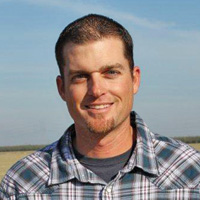We Are a Team

 Charles DeGroot
Charles DeGroot
Fresno, Calif.
DeGroot is a third-generation California dairy producer whose San Joaquin Valley operation milks 2,400 cows.
**Extended comments highlighted in blue.
Our farm is and always has been a family-owned and -operated business. My grandfather was hands-on, my dad is hands-on, and my brother and I are hands-on. We make all the major decisions on a day-to-day basis, but we can’t do it alone. We rely on a team of good employees to help us accomplish our goals. We work side by side with our employees to make our operation run.
For us, finding employees is not an issue. We have at least one or two people a day stop and ask for work. Fortunately, we have very little turnover, so most of the time we just take their information and send them down the road.
In the event that we do need to hire, we most often interview someone recommended to us by a current employee. It doesn’t always work out, but we’ve found that most often a current employee isn’t going to recommend someone who could make them look bad. My herdsman and I will meet and talk with the potential new hire, and, if we agree, we will place that person in the position with a current employee to train.
The job training at our farm is hands-on. We need to see if they can do the work but also how well they work around animals. My herdsman explains the job description and procedures associated with the job. Then he places them in that position (with a current employee).
We observe and tell them that if there is something they don’t like about that position after one day of training, they are free to go. We will leave new hires in training alongside another employee for several days or until we feel they are capable of performing the tasks on their own. If, at any time, we feel they are not capable, we will ask them to leave.
We also use a dairy specialist for safety, milking, herd health and calving training meetings. These meetings are designed to help employees better understand cows and why we ask them to do things a certain way. The more knowledge employees have about animals and how their jobs affect the animals, the better they can perform their tasks. Because we have very little turnover, these meetings serve as a refresher course for most employees. A meal is provided, and we usually plan a meeting like this at the end of a shift.
For specialized job training such as breeding, we work closely with a reproduction specialist from All West/Select Sires to train employees and monitor reproduction activity. Our repro specialist visits our dairy quarterly to walk with our breeders and evaluate heat detection, semen handling and breeding technique. He then meets with me, the herdsman and the breeder to go over his evaluation of records and our on-farm practices. We have made huge improvements to our repro program because of his expertise. It has helped keep our in-house breeder motivated to do a good job no matter what.
It’s important for us to have long-term employees who are committed to helping our business succeed. Every employee gets a fair compensation package, health insurance (employee and family), dental plan, a pension/retirement plan and vacation pay (based on length of employment). It is our goal to succeed as a business, and we know that it doesn’t happen without good employees. We do our best to provide a working environment and benefits that help keep our employees motivated to do their best.
| DeGroot's Most Recent Prices | |
| Milk (3.4% bf, 3.19% prt, 78 lb.) | $15.05/cwt. (over base), $16.75/cwt. (quota) |
| Cull cows | $75/cwt. |
| Springing heifers | $1,200/head |
| Alfalfa hay (delivered/premium) | $280-$310/ton |
| Corn (rolled) | $350/ton |
| Cottonseed | $418/ton |
| Bull calves | $50/head |
| Canola | $411/ton |







